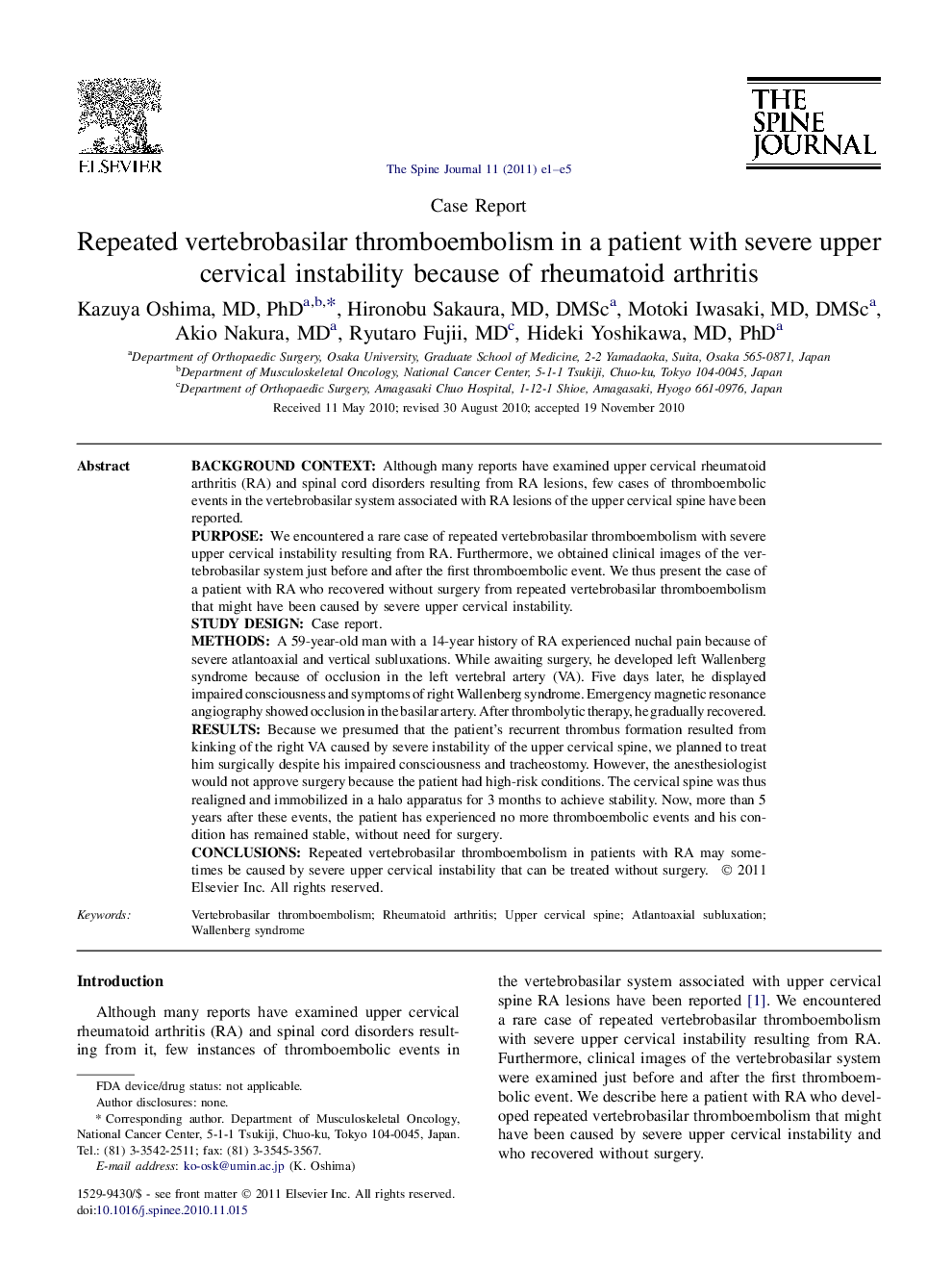| Article ID | Journal | Published Year | Pages | File Type |
|---|---|---|---|---|
| 4099293 | The Spine Journal | 2011 | 5 Pages |
Background contextAlthough many reports have examined upper cervical rheumatoid arthritis (RA) and spinal cord disorders resulting from RA lesions, few cases of thromboembolic events in the vertebrobasilar system associated with RA lesions of the upper cervical spine have been reported.PurposeWe encountered a rare case of repeated vertebrobasilar thromboembolism with severe upper cervical instability resulting from RA. Furthermore, we obtained clinical images of the vertebrobasilar system just before and after the first thromboembolic event. We thus present the case of a patient with RA who recovered without surgery from repeated vertebrobasilar thromboembolism that might have been caused by severe upper cervical instability.Study designCase report.MethodsA 59-year-old man with a 14-year history of RA experienced nuchal pain because of severe atlantoaxial and vertical subluxations. While awaiting surgery, he developed left Wallenberg syndrome because of occlusion in the left vertebral artery (VA). Five days later, he displayed impaired consciousness and symptoms of right Wallenberg syndrome. Emergency magnetic resonance angiography showed occlusion in the basilar artery. After thrombolytic therapy, he gradually recovered.ResultsBecause we presumed that the patient’s recurrent thrombus formation resulted from kinking of the right VA caused by severe instability of the upper cervical spine, we planned to treat him surgically despite his impaired consciousness and tracheostomy. However, the anesthesiologist would not approve surgery because the patient had high-risk conditions. The cervical spine was thus realigned and immobilized in a halo apparatus for 3 months to achieve stability. Now, more than 5 years after these events, the patient has experienced no more thromboembolic events and his condition has remained stable, without need for surgery.ConclusionsRepeated vertebrobasilar thromboembolism in patients with RA may sometimes be caused by severe upper cervical instability that can be treated without surgery.
